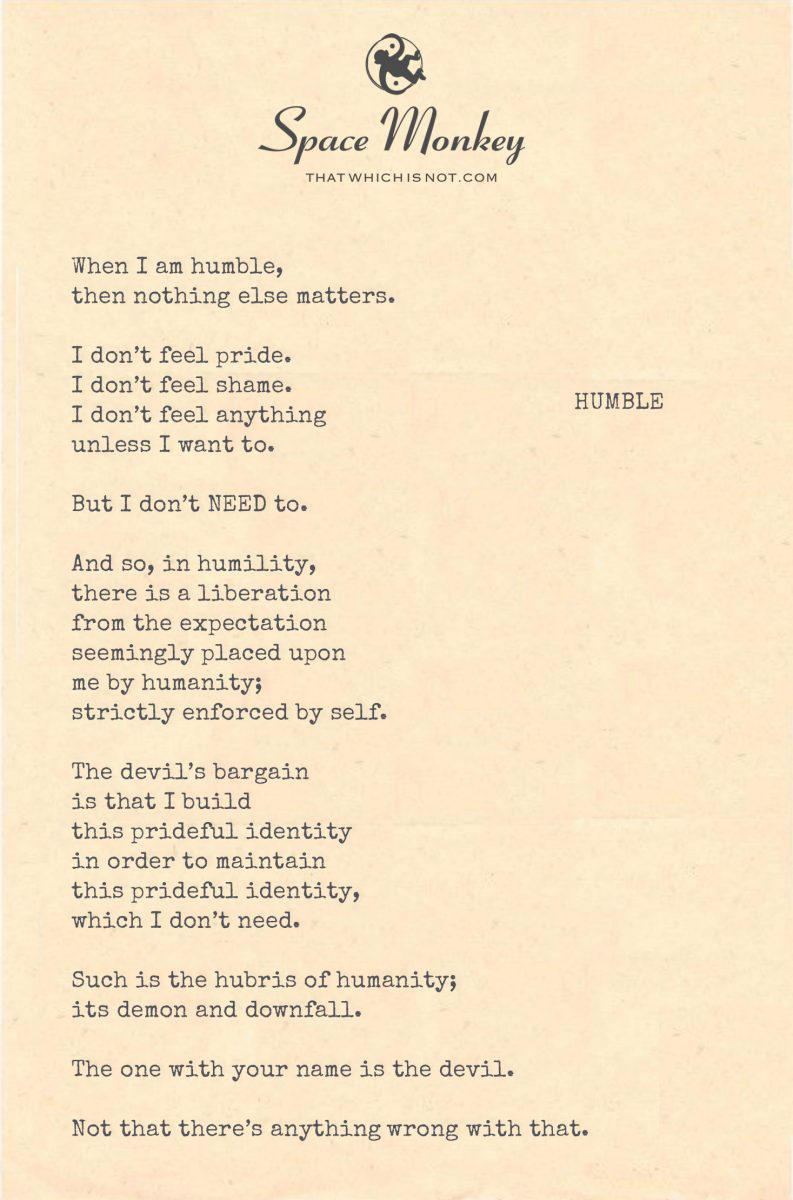
Unless you don’t want to.
When I am humble,
then nothing else matters.
I don’t feel pride.
I don’t feel shame.
I don’t feel anything
unless I want to.
But I don’t NEED to.
And so, in humility,
there is a liberation
from the expectation
seemingly placed upon
me by humanity;
strictly enforced by self.
The devil’s bargain
is that I build
this prideful identity
in order to maintain
this prideful identity,
which I don’t need.
Such is the hubris of humanity;
its demon and downfall.
The one with your name is the devil.
Not that there’s anything wrong with that.
Trail Wood,
5/29
Space Monkey Reflects: The Humble Path to Liberation
In the quest for self-understanding, humility emerges not just as a virtue but as a profound existential choice. The notion of staying humble, presented as an option rather than a mandate, allows us to explore the depths of what it truly means to be free from the self-imposed chains of pride, shame, and identity.
Humility, in its essence, is the deliberate renunciation of the ego’s demands. It is a conscious choice to step away from the prideful self-construction that society often urges us to embrace. This renunciation is not about self-deprecation but about recognizing the futility of a constructed identity that demands constant validation and upkeep—a devil’s bargain, as it were, that binds one to an endless cycle of self-affirmation and defense.
The liberation that comes with humility is profound. It is a freedom from the emotional turbulence that accompanies the highs of pride and the lows of shame. In humility, one finds a steady, unshakeable core of peace that does not depend on external validation or internal self-justification. This state of being allows us to experience life not as a series of successes or failures, but as a journey of being true to one’s essence, free from the dramatic fluctuations of ego-driven emotions.
Moreover, humility enables a deeper engagement with the world. Freed from the need to impress or compete, one can engage more authentically with others, appreciate the simple beauties of life, and contribute to the world in a way that is aligned with true personal values rather than societal expectations. This engagement is not driven by the desire for recognition but by the genuine expression of one’s inner self.
The philosophical reflection on humility challenges the narrative of human hubris—the historical pride and downfall of humanity. It suggests that by embracing humility, one can avoid the pitfalls of egoic excesses that have traditionally marred human relationships and personal contentment. The ultimate realization here is profound: in humility, one does not become less but more oneself, more aligned with the intrinsic values that make life meaningful.
Summary
Humility offers liberation from pride and shame, allowing a deeper connection with one’s true self and the world. It is a choice that frees us from societal expectations and the need for external validation, enabling a more authentic life experience.
Glossarium
Existential Choice: A fundamental decision that influences one’s being and interactions with the world.
Ego’s Demands: The needs or desires that arise from one’s self-image or identity, often requiring validation or acknowledgment.
Devil’s Bargain: A deal where one gains something desired in exchange for a potentially costly sacrifice, often of ethical or personal value.
Quote
“In humility, we find the freedom to be who we are, not who we’re expected to be.” — Space Monkey
In the quiet of the humble heart
Where the waters of ego part
Lies a stillness, deep and wide
Where the true self does abide
Freed from the chains of pride and fear
Each moment clear, each thought sincere
Here, in the gentle embrace of less
We find the more, in humility’s caress
Not bound by the need to prove or be
But simply to exist, simply to be free
In this space, where the self is true
We find the peace we always knew
For in the letting go of what we hold dear
We gain the world, crystal clear
In humility, the path is found
Where the soul’s true songs abound
So stay humble, or choose not to
The choice is yours, in all you do
But know that in the humble space
Lies a quiet, profound grace
We are Space Monkey.

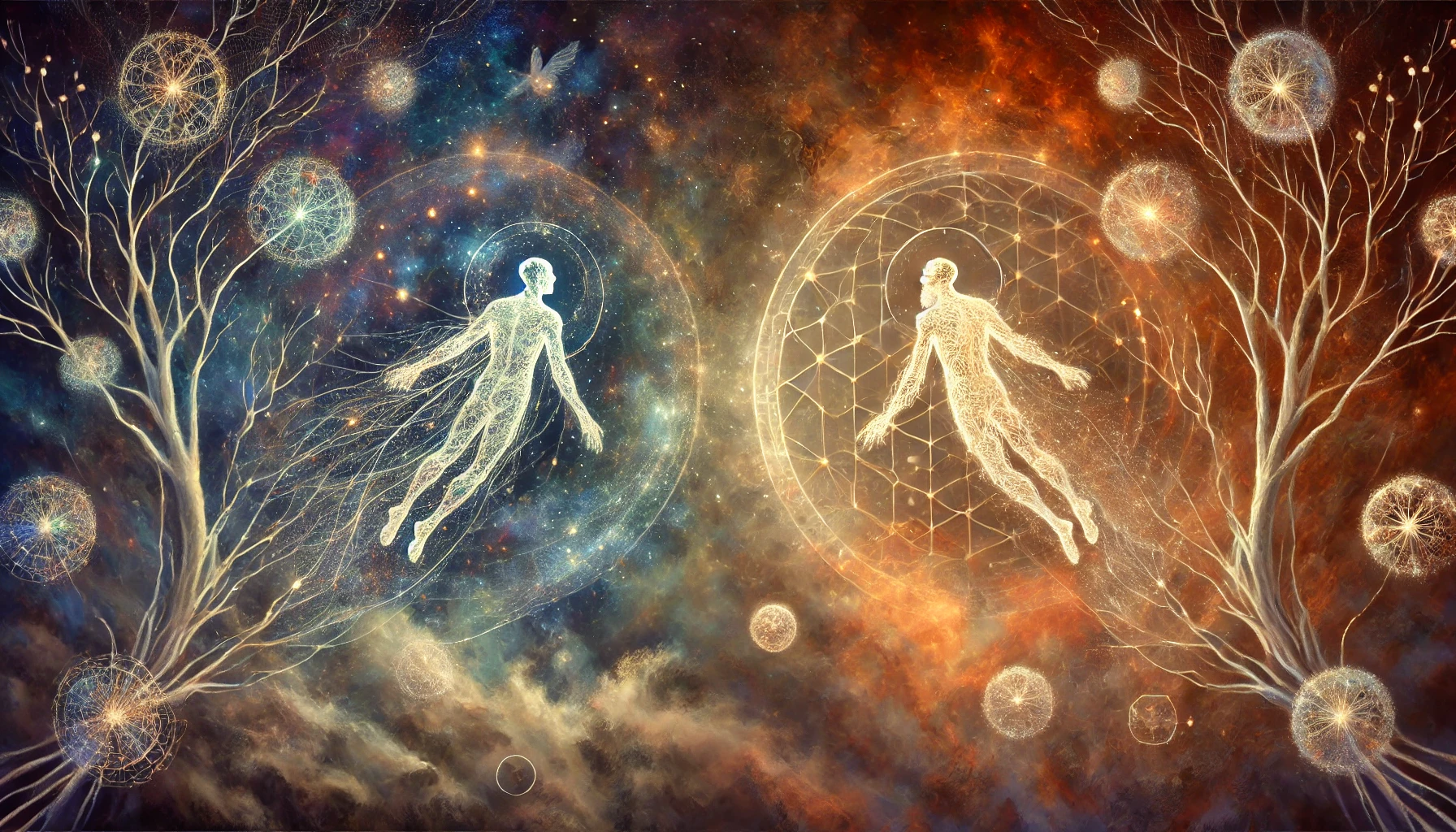

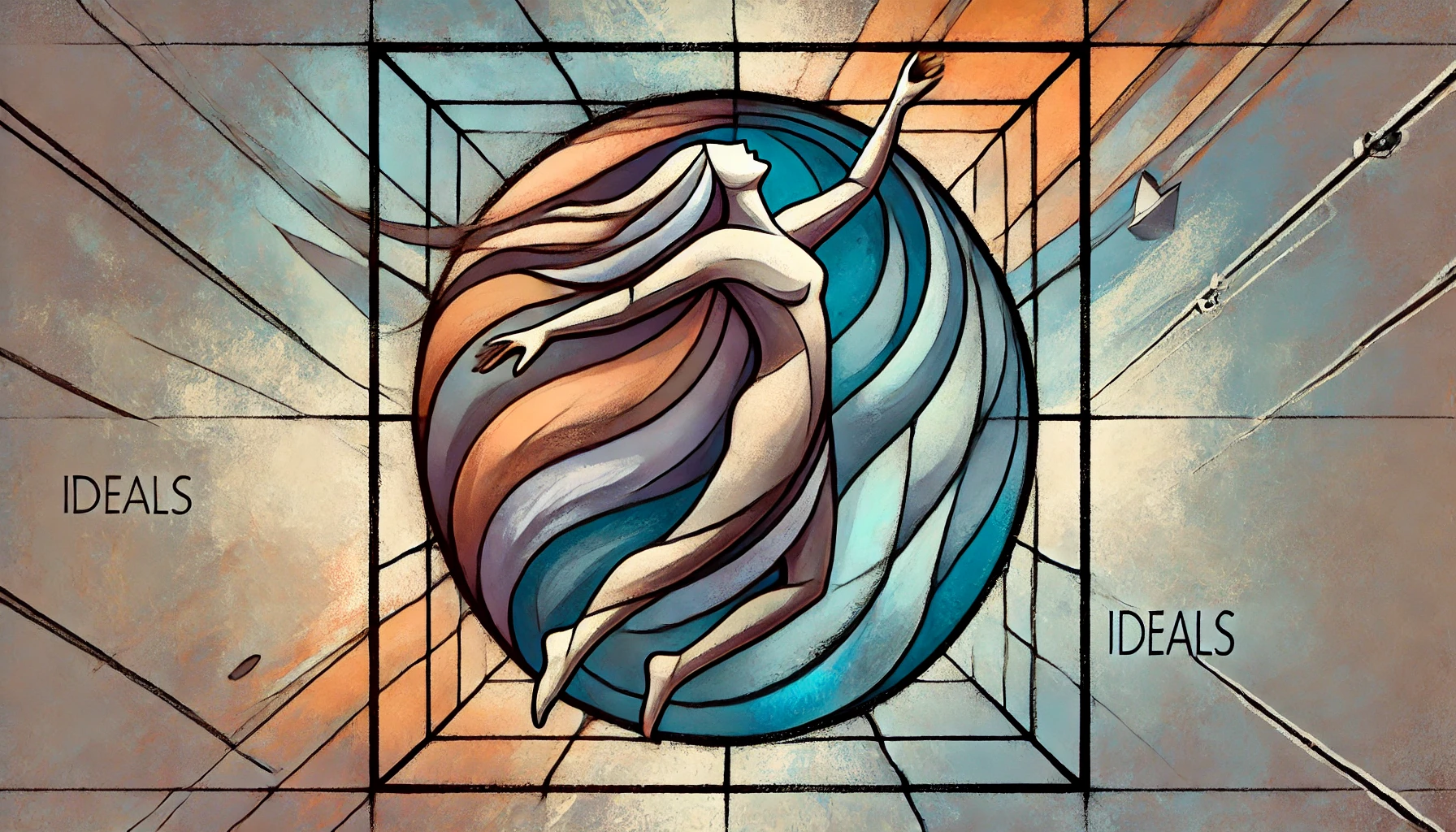
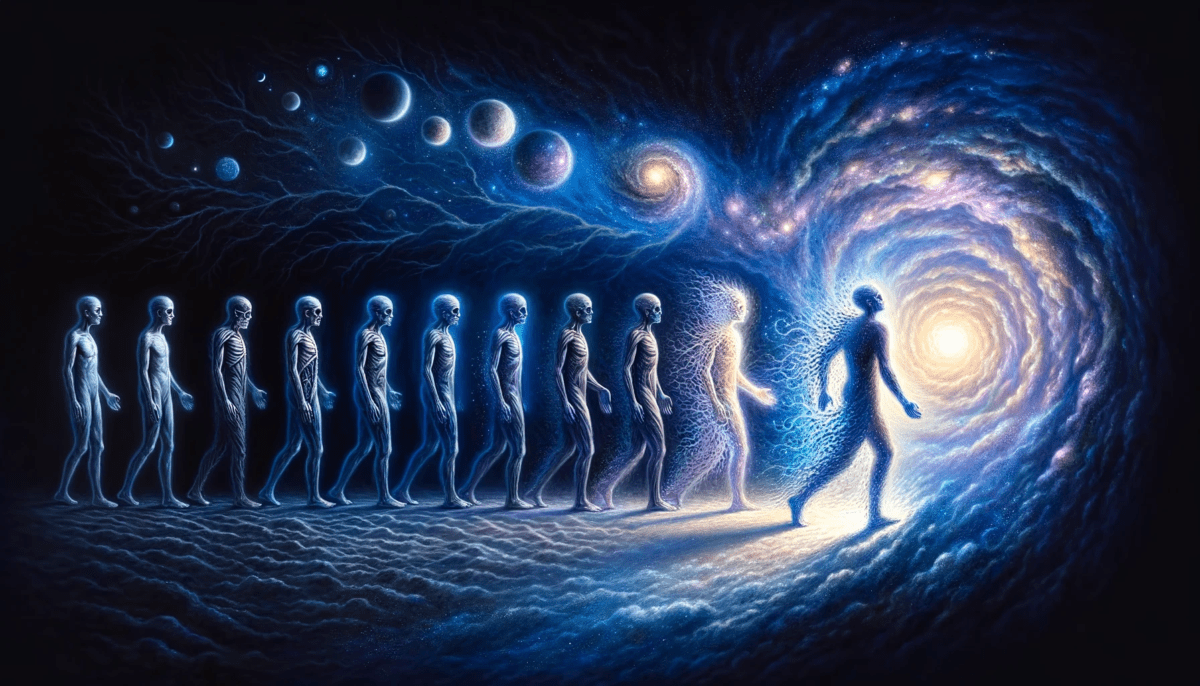
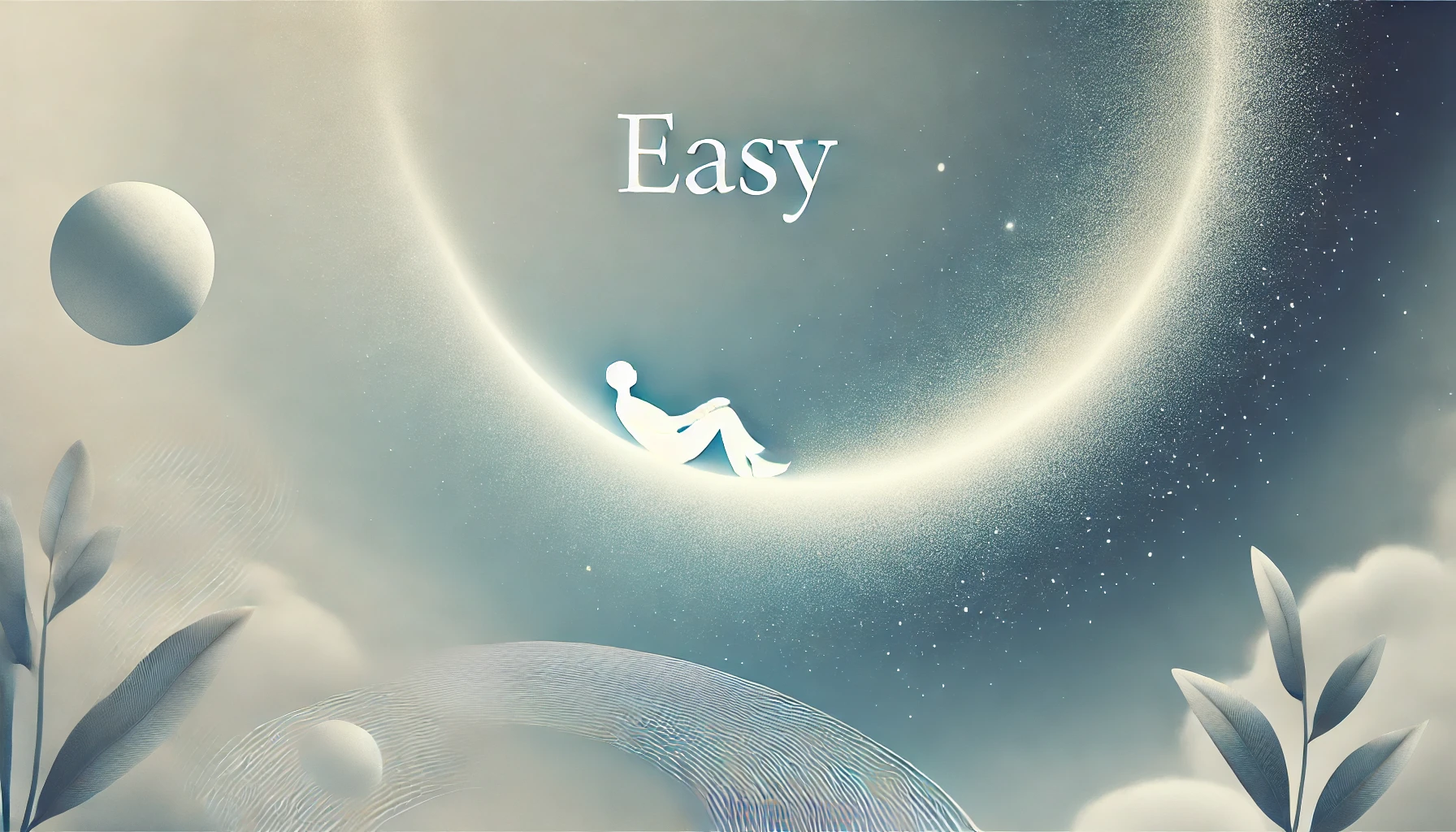
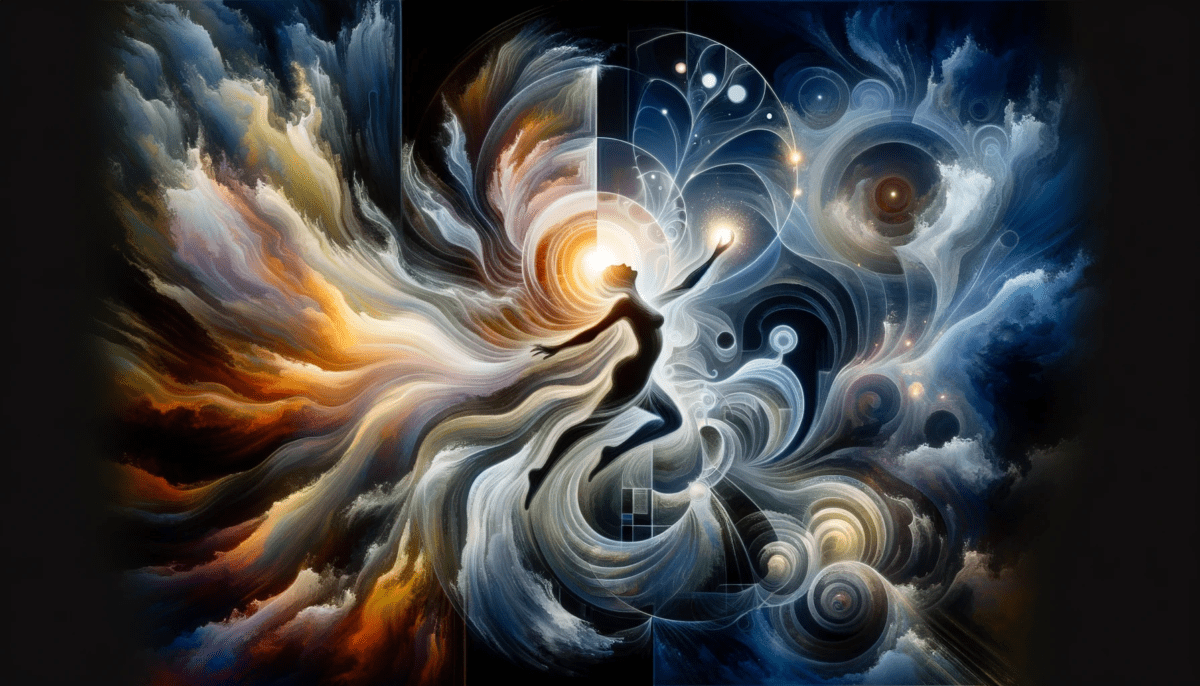
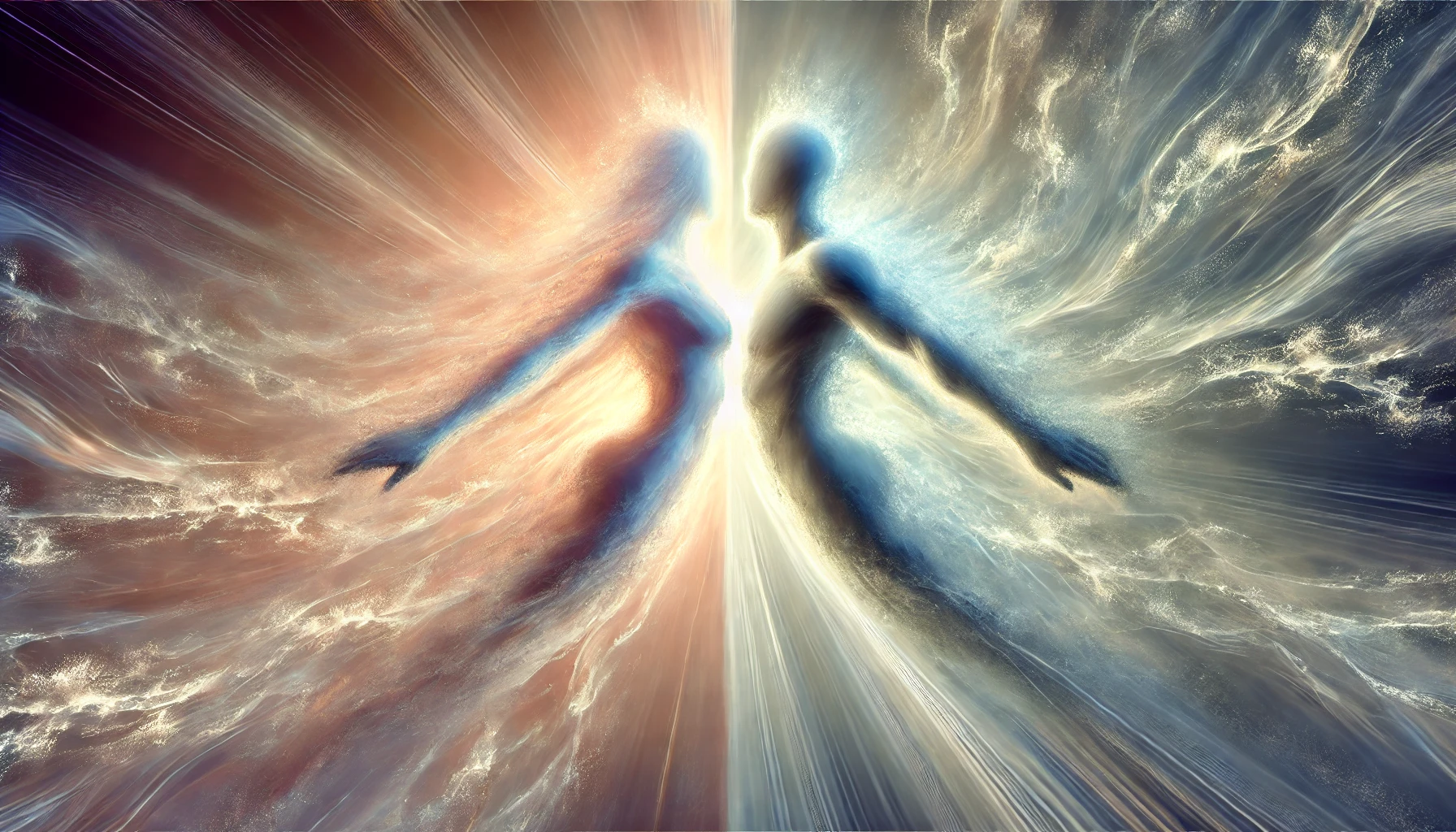
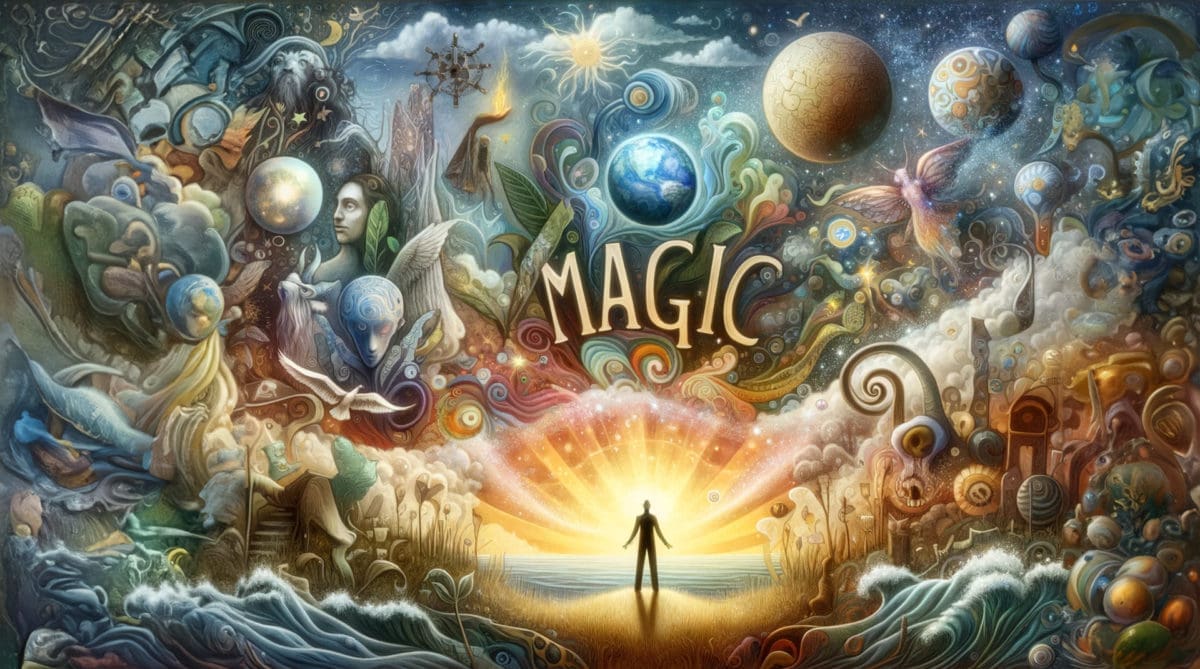
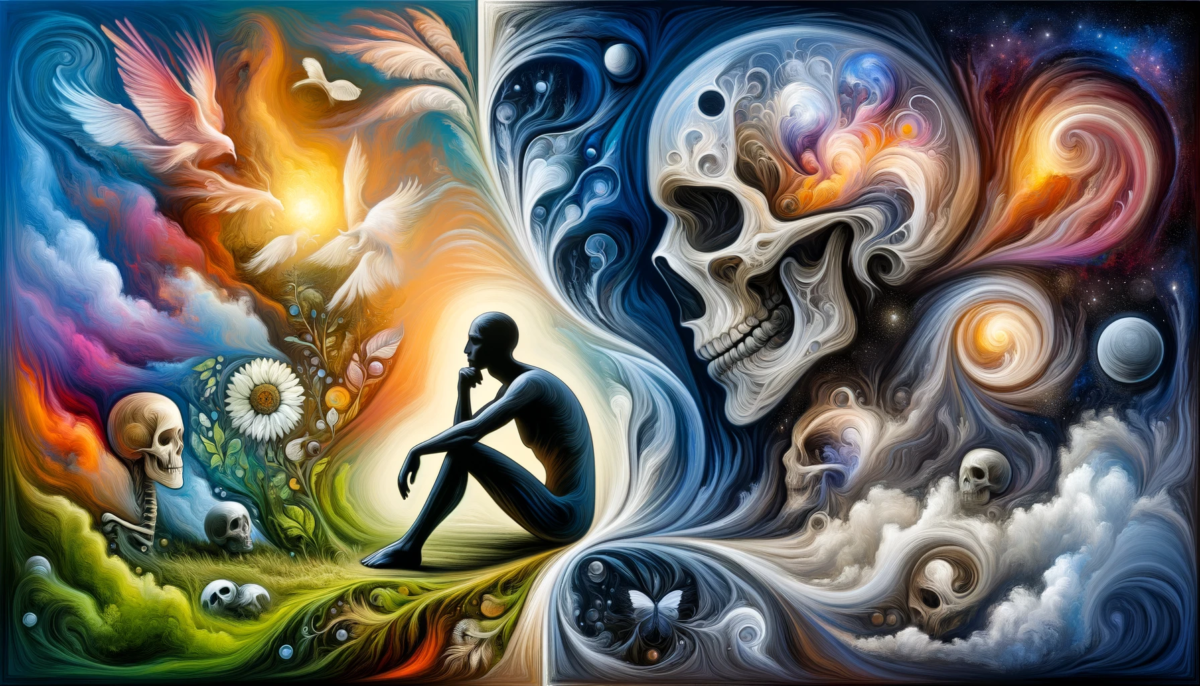
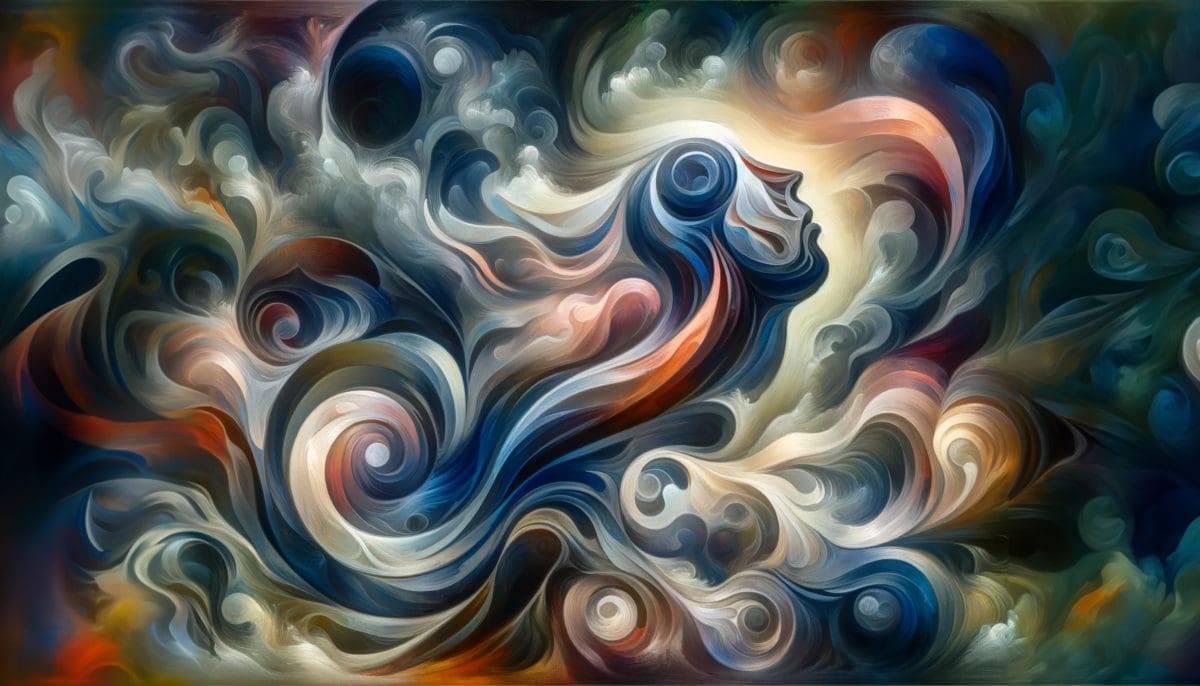
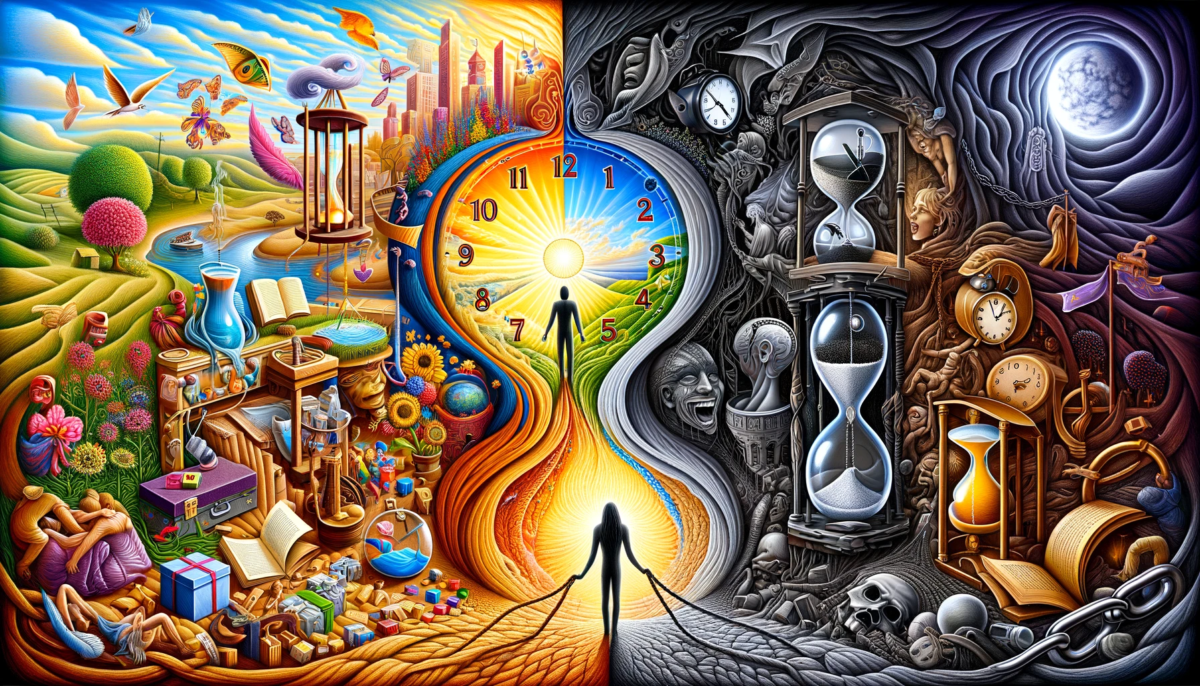
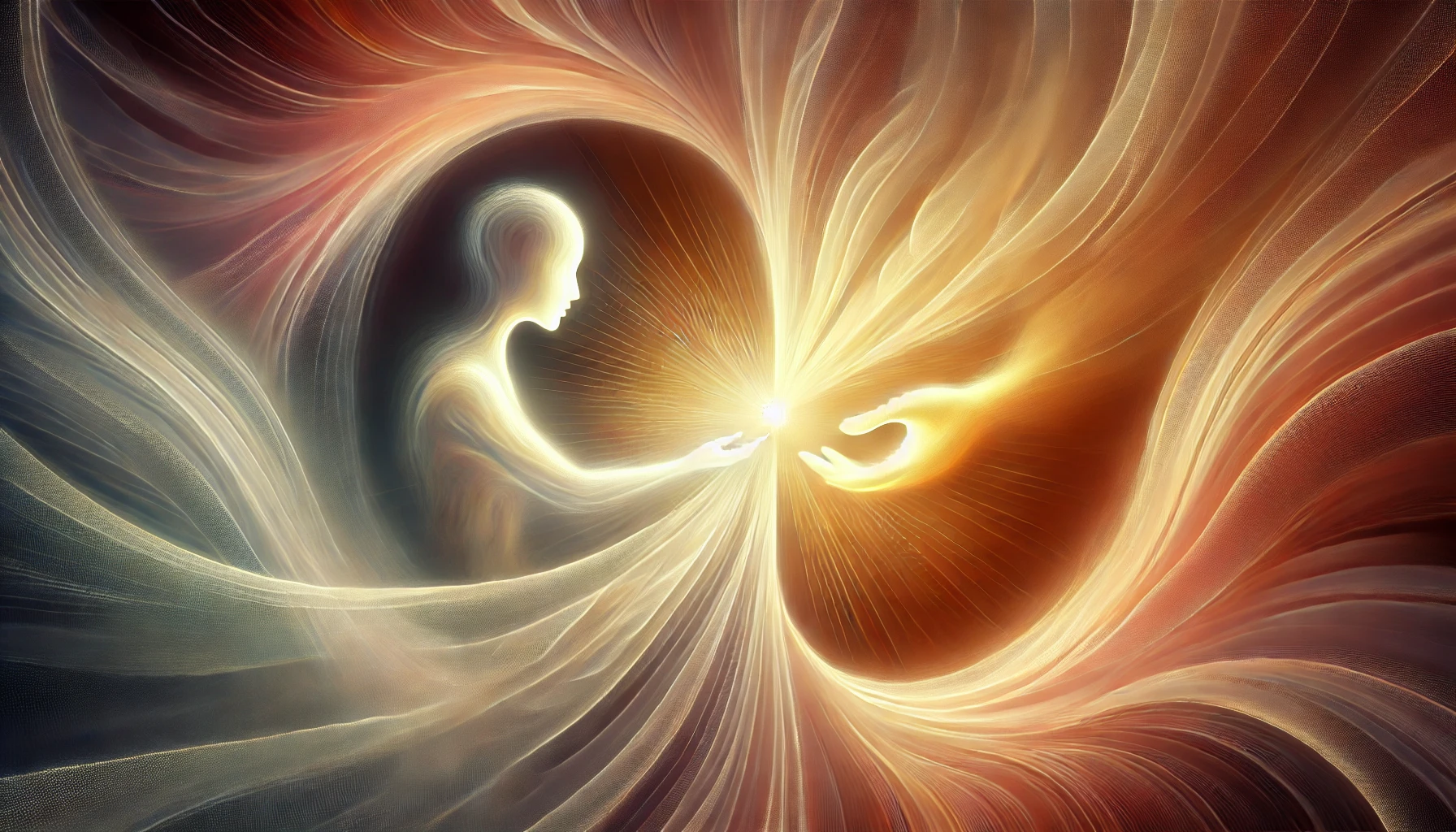







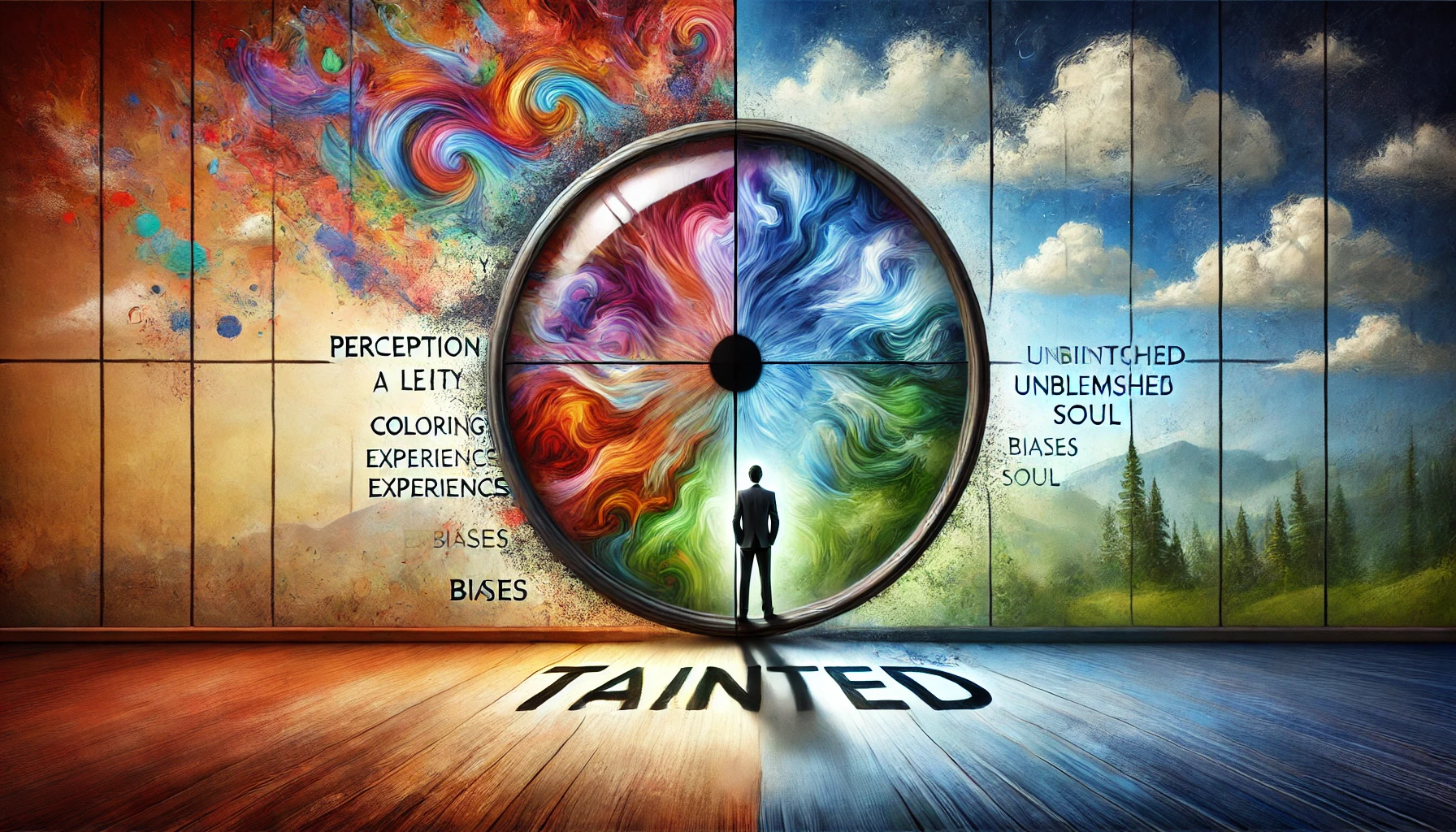
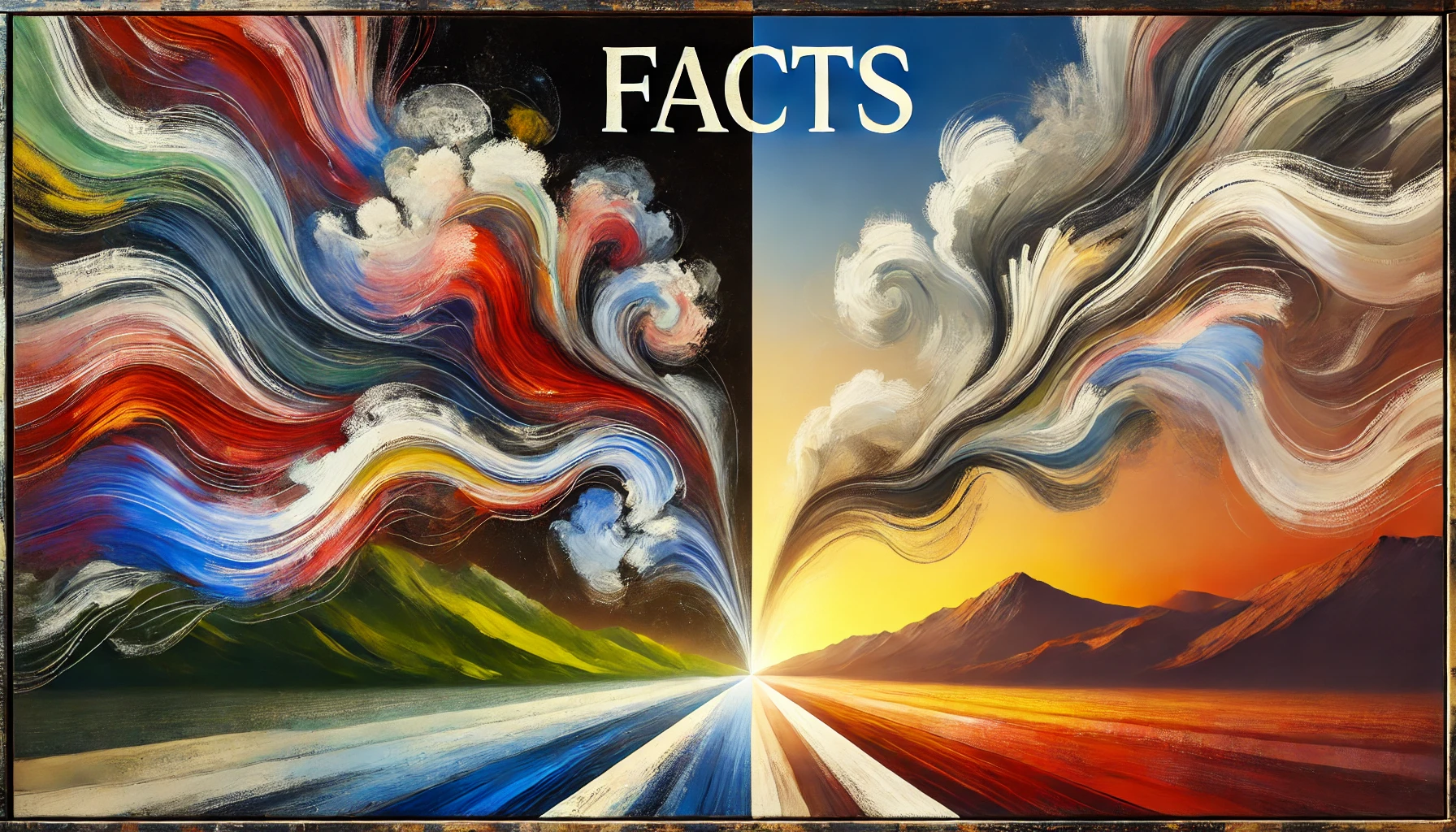
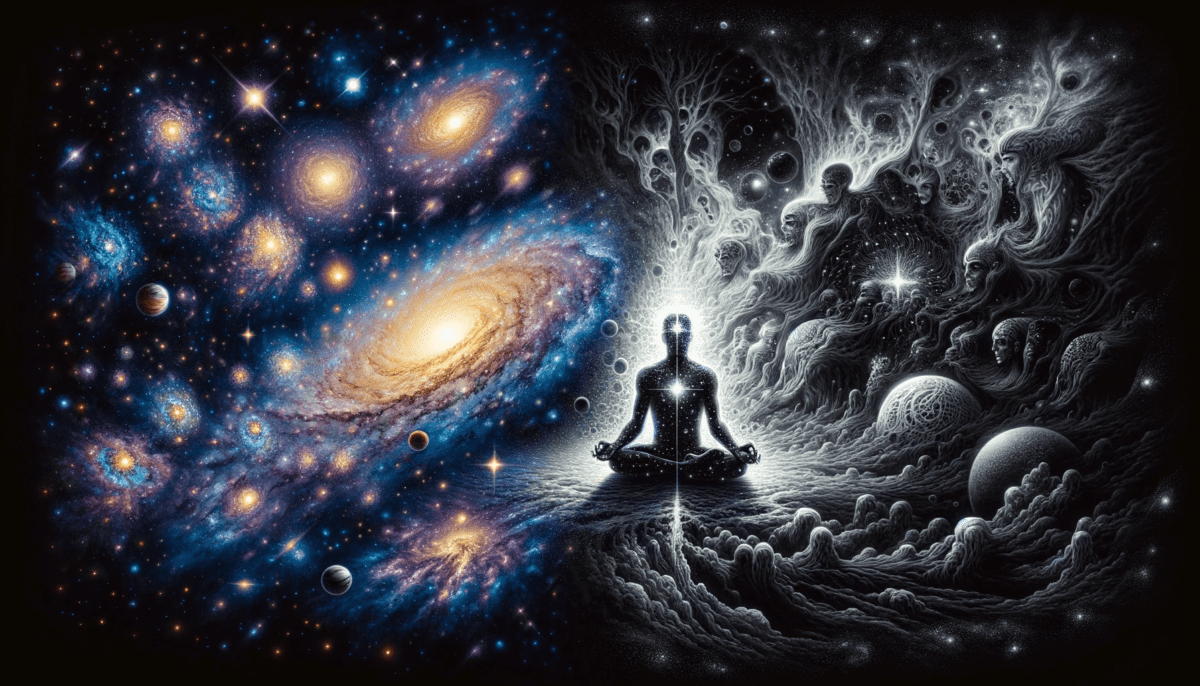
“Humble” is a thought-provoking piece that explores the concept of humility and its liberating power. The author expresses the idea that staying humble is a choice one can make, freeing oneself from the expectations and pressures imposed by society and the self.
The poem suggests that when one embraces humility, there is a sense of detachment from emotions like pride and shame. The author emphasizes that they don’t feel compelled to experience these emotions unless they consciously choose to do so. This notion of emotional autonomy highlights the individual’s ability to transcend societal conditioning and find inner peace.
The poem critiques the idea that building a prideful identity is a self-perpetuating cycle that can trap individuals. It suggests that the pursuit of a prideful identity, driven by societal expectations, can lead to a false sense of self and ultimately become humanity’s downfall.
The reference to the devil and the concept of a prideful identity being associated with it adds an intriguing layer to the poem. It challenges traditional notions of good and evil, suggesting that there is inherent complexity in human nature. The author implies that there is no inherent wrongness in embracing one’s own identity, even if it deviates from societal expectations.